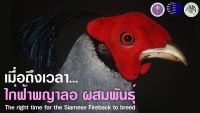Keywords :
Amphibian; Antipredator Behaviour; Egg Attendance; Maternal Care; Orthopteran; Parental Investment; Predator; Prey Interaction.
บทคัดย่อ :
Predator and prey relationships are dynamic and interrelated. Thus, any offensive behaviour will vary according to differing defensive behaviours, or vice versa, within each species in any predator-prey system. However, most studies are one-sided as they focus on just one behaviour, that of either the predator or prey. Here, we examine both predatory behaviour of an oophagus katydid and antipredator behaviour by a frog with egg-stage parental care. Katydid offensive behaviour and predation success was greater in females and increased with predator maturity and size. Frog defensive behaviour was sex specific, probably because only mothers provide parental care. Defensive behaviour could be active, such as charging predators, or passive, such as sheltering eggs, with greater active defence against larger predators; neither was influenced by offspring age. These results are contrary to existing theory, which argues parental investment ought to be negatively correlated with parental predation risks and affected by offspring age. This study highlights the use of antipredator behaviour to test predictions of parental investment theories in amphibians. In addition, it illustrates the need to consider factors that influence both species concurrently when examining the complex interaction between predators and parents.
เอกสารอ้างอิง :
Poo, S., Evans, T., Tan, M., & Bickford, D.(2016a). Dynamic switching in predator attack and maternal defence of prey. Biological Journal of the Linnean Society, 118(4), 901-910



